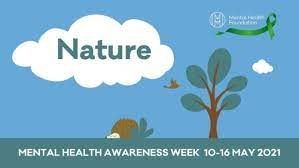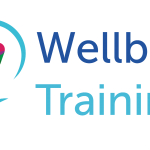Why ‘Nature’ is the theme for Mental Health Awareness Week
 This last year has made many of us start to reflect on what is important in our lives. It has given us a new perspective on all the things we have missed during long periods of lockdown.
This last year has made many of us start to reflect on what is important in our lives. It has given us a new perspective on all the things we have missed during long periods of lockdown.
Research has shown that going for walks outside was one of our top coping strategies and 45% of us reported being in green spaces had been vital for our mental health and wellbeing.
We began to take more walks near our homes because the government guidance around COVID-19 required that we didn’t travel too far. Consequently, we all began to discover our local area and all that it had to offer.
I have always been an advocate for living in Plymouth and often tell people how lucky I am to have convenient access to the sea and the moors, but even I was amazed at how many beautiful areas there are very near to where I live – it gave me a renewed appreciation of nature in Plymouth.
What do we mean by ‘Nature’? 
By “nature” we mean any environment in which we can use our senses to experience the natural world. This could include the countryside, a park or garden, coast, and lakes. It could also include nature that you can see or interact with in or from your home.
Nature and our Mental Health
Nature is known to be essential to our psychological and emotional wellbeing and is an important factor for good mental health. Even small contacts with nature can reduce feelings of social isolation and be effective in protecting our health and reducing stress.
Around 13% of UK households have no access to a garden, so this campaign aims to raise awareness around the importance of nature. It is a fundamental resource that must be available for everyone to enjoy and should be seen as one of our basic needs.
MH Awareness Week 2021 has two main aims:
- To inspire more people to connect with nature in new ways, and as part of their wellbeing.
- To convince decision makers at all levels that everyone is entitled to have access to nature wherever they live and whatever their circumstances.
What does ‘Nature’ mean to you and your Mental Health and Wellbeing? 
Listening to the birds on an early morning walk. For me it’s about fresh air and sunshine, on a lovely walk with my dog Poppy, along a coastal path near my home in Devon.
- Sitting in my garden listening to the pond fountain trickling away in the background, as I lie on my sun chair enjoying some relaxation after a busy day.
- Catching the last few rays of sunshine before it disappears off my garden behind some trees.
- It’s also about those very simple things like the smell of the first freshly cut grass of the year – I find it really awakens the senses and makes you feel that summer is on its way.
- I also love the smell of rain on the hot ground in the middle of summer, giving everything a lovely freshness after weeks of wall-to-wall sunshine.
What can you do during MHAW to support your Mental Health and Wellbeing?
- Take time to recognise and grow your connection with nature during the week.
- Take a moment to notice and celebrate nature in your daily life. You might be surprised by what you notice!
- Take a photo, video or sound recording and share the connections you’ve made during the week, to inspire others.
- Join the discussion on how you’re connecting with nature by using the hashtags #ConnectWithNature #MentalHealthAwarenessWeek

- Talk about nature with your family, school, workplace, and community and think about how you can help encourage people to find new ways to connect with nature in your local environment.
Links for more information about this year’s Mental Health Awareness Week:
https://www.mentalhealth.org.uk/mhaw
https://www.mentalhealth.org.uk/campaigns/mental-health-awareness-week/why-nature
Nita Dodd, Advanced Health Improvement Practitioner, Wellbeing at Work








